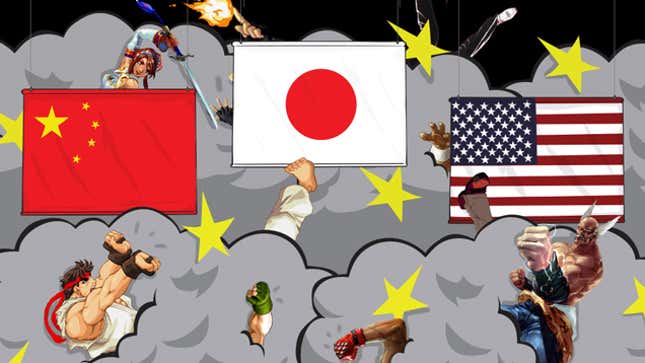
Thanks to a tradition that goes back as far as Street Fighter II, fighting game stories are usually presented as world tournaments. It's a convenient narrative device, as it allows the opportunity to display fighting styles from around the world to distinguish characters from one another. But which of these countries produces the best fighters?
To answer that, we'd have to consult fighting game canon to find out who the "winner" has been for each of these games. (For lore enthusiasts, fighting games pose some interesting challenges: most importantly, you usually don't know which character comes out on top in a particular story until the sequel clarifies which character's ending has been codified as the "true" ending.)
Here's a breakdown of 10 of the biggest fighting game series, and where their winners call home.
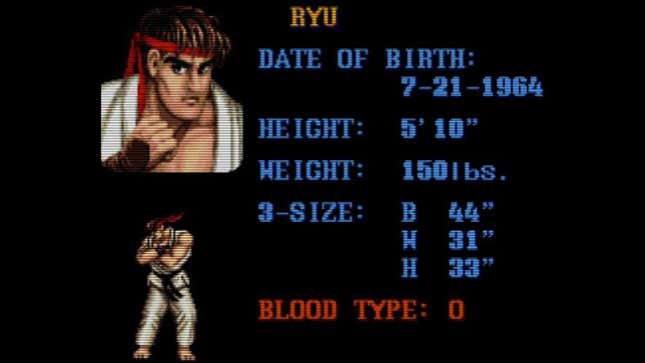
STREET FIGHTER
Street Fighter: Ryu (Japan)
Ryu is Player One in the original Street Fighter, and subsequent games explicitly declare him the champion of this first game. It's kind of a sore point for Sagat.
Street Fighter II: Nobody
There have been many versions of Street Fighter II over the years, but canonically, the world tournament which sets the stage for this game is disrupted by Akuma (Japan) before it could reach completion. If you like, you could interpret Akuma as the winner of this one, but the game series doesn't go out of its way to treat him as such.
Street Fighter Alpha: Everybody
Unlike most fighting games, no tournament or common goal is provided as a framing device, and each character in the Street Fighter Alpha series has their own unique story arc. As such the events aren't mutually exclusive, and no one person can claim to be the winner.
Street Fighter III: Alex (USA)
Later editions of Street Fighter III explore a story beyond that of the initial tournament in this game, and we find that lead character, Alex, has emerged the winner. There's some speculation that the match may have been thrown, but whining doesn't take the belt away.
Street Fighter IV: Unknown
This is the latest entry in the series, and we can't yet say for sure who wins this one. Street Fighter III, which counter-intuitively is set after Street Fighter IV, makes reference to Chun-Li (China) taking down Street Fighter IV's Shadaloo organization once and for all. But it's a little bit of a leap to assume Street Fighter III was referring to the outcome of this game in particular.
TEKKEN
Tekken: Kazuya Mishima (Japan)
Tekken's a great, unambiguous series for fighting game canon. Each subsequent game clearly spells out who won the last entry in the series, and little debate is to be had. Once we got Tekken 2, it was readily apparent that Kazuya had won this tournament sponsored by his neglectful father. Take that, Dad!
Tekken 2: Heihachi Mishima(Japan)
The interesting feature of Tekken canon is that each tournament is sponsored by a different character. The last game's tournament was sponsored by Heihachi, but in this sequel, the script gets flipped and Heihachi comes back and wins the tournament sponsored by the very company his son usurped from him at the end of the previous game. Take that, Son!
It's worth noting that, by this point, Heihachi has had his Japanese citizenship revoked. But I'm counting him as Japanese anyway.
Tekken 3: Jin Kazama (Japan)
Officially, tournament sponsor Heihachi awarded himself the victory, but he unambiguously cheated Jin, protagonist and true winner of the tournament, out of the title for sheer spite.
Tekken 4: Heihachi Mishima (Japan)
Jin came back and beat Heihachi in a rematch after this tournament was over, but that doesn't count and nobody saw it. So you know what? Heihachi does win this one. Don't complain, man, I gave you Tekken 3.
Tekken 5: Jin Kazama (Japan)
As of this tournament, Heihachi is replaced as sponsor by his dad, Jinpachi. And under his new jurisdiction, Jin finally scores a legitimately recognized victory. (But don't tell Hwoarang that.)
Tekken 6: Unknown
As of the latest game in the Tekken series, protagonist Jin Kazama gets a turn as tournament sponsor. Tradition dictates we'll learn who won for sure when we get Tekken 7.
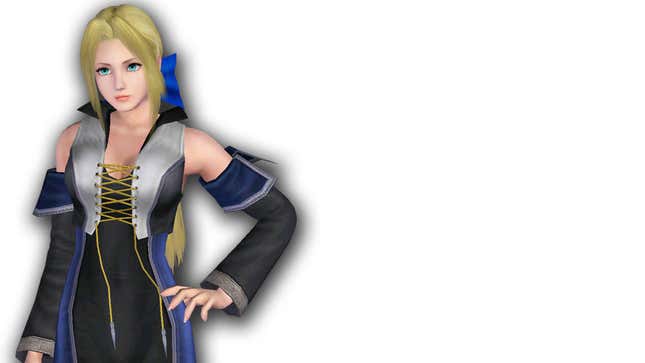
DEAD OR ALIVE
Dead or Alive: Kasumi (Japan)
Dead or Alive is another fighting game series which makes things nice and unambiguous- even more so than Tekken, as it generally forgoes sponsorship politics and questionably valid final boss fights.
Dead or Alive 2: Ryu Hayabusa (Japan)
Dead or Alive 3: Ayane (Japan)
Dead or Alive 4: Helena Douglas (France)
Helena legitimately wins this tournament, but officially awards the title to Zack (USA), who saves her life at the end of the game. This is likely in homage to the Xtreme Beach Volleyball spin off series, which is set in an alternate canon where serial womanizer Zack won the previous tournament, used his winnings to buy his own island, invited all the girls from Dead or Alive there to a fake tournament, and basically kept them hostage for his own voyeuristic pleasure.
Did you guys know Xtreme Beach Volleyball had a story? And that it's super creepy? Yep.
Dead or Alive 5: Jann Lee (China)
Unlike most fighting games, rather than wait for the sequel, this game unambiguously declares Jann Lee its victor. Kasumi goes on to defeat the final boss, but Jann Lee wins the tournament proper. Maybe there'll be some wacky reinterpretation of events once we get Dead or Alive 6, but until then, he remains our champion.
VIRTUA FIGHTER
Virtua Fighter: Lau Chan (China)
As a rule, Virtua Fighter contains about as much plot as, say, Virtua Tennis. Still, the series ensures we know who has won each tournament in updated character bios in each subsequent entry.
Virtua Fighter 2: Akira Yuki (Japan)
Virtua Fighter 3: Kage-Maru (Japan)
Virtua Fighter 4: Kage-Maru (Japan)
Virtua Fighter 5: Unknown
There's no word on a Virtua Fighter 6, so we might be in the dark for a while on this one.
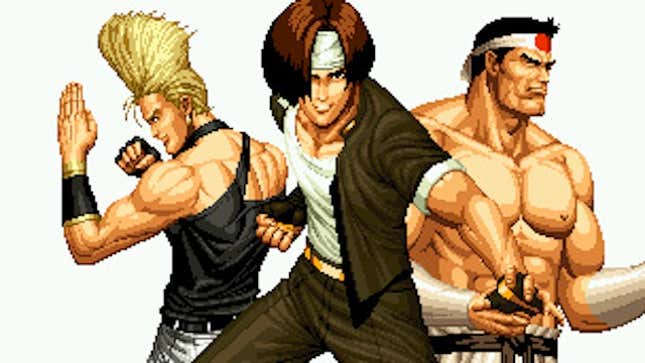
THE KING OF FIGHTERS
The King of Fighers '94: Kyo Kusanagi, Benimaru Nikaido, Goro Daimon (Japan)
First of all, the King of Fighters mythos is way more complex than I've distilled it to be in this section. (Special thanks to King of Fighters canon expert Luís Coelho for helping me piece this together.) Keep in mind that these are the tournament results at their most superficial, for the sake of comparison with other, clearer cut fighting game series.
Secondly, unlike most fighting games, where each combatant is out for themselves, the King of Fighters series groups them into teams. So, in each tournament, we'll have multiple victors, sometimes representing different nations.
This victory is usually awarded to what the game deems the "Hero Team," and in these early entries in the series, that means Kyo, Benimaru, and Daimon.
The King of Fighters '95: Kyo Kusanagi, Benimaru Nikaido, Goro Daimon (Japan)
The King of Fighters '96: Kyo Kusanagi, Benimaru Nikaido, Goro Daimon (Japan)
...Okay, granted, this isn't so clear cut. Kyo's team canonically wins the tournament, but like Tekken and Dead or Alive, officially winning the tournament and defeating the final boss don't always go hand in hand. Along with Kyo, Iori Yagami and Chizuru Kagura are the ones who defeat this year's big bad guy, Goenitz. But as far as the King of Fighters Tournament is concerned, Kyo and his teammates are our official victors.
The King of Fighters '97: Kyo Kusanagi, Benimaru Nikaido, Goro Daimon (Japan)
Once again, Kyo teams up with Iori and Chizuru to defeat the final boss, this time the would-be eradicator of the human race, Orochi. Chizuru and Iori deserve recognition for their efforts in saving the world, but in the world of King of Fighters, there's a difference between a "hero" and the "Hero Team."
The King of Fighters '98: Nobody
This is one of three games in the main King of Fighters series to throw even the most threadbare semblance of story to the wind and just let everyone fight each other. In later games, it's regarded to have never occurred. This is what in KoF lingo is sometimes called a "Dream Match," and was in fact used as this game's subtitle.
The King of Fighters '99: K' (Unknown), Maxima (Canada), Benimaru Nikaido (Japan), Shingo Yabuki (Japan)
After a brief story hiatus, the King of Fighters series reorganizes itself to focus on a different character, as it is wont to do every three games or so. This entry introduces K' as our new protagonist, who hails from parts unknown. K' and his often multicultural team might not always be explicitly declared the victor throughout his tenure, but as the story's focal point, it's a safe enough assumption to count him as such.
The new guard also scores another victory for Benimaru, a man who has demonstrated he knows how to follow the tides of change.
The King of Fighters '00: K' (Unknown), Maxima (Canada), Vanessa (Unknown), Ramon (Mexico)
The King of Fighters '01: K' (Unknown), Maxima (Canada), Whip (Unknown), Lin (China)
Thus concludeth the NESTS Saga, a story about a secret organization which has been manipulating the King of Fighters tournament since 1999. From this point on, K' will recede into the background.
The King of Fighters 2002: Nobody
Another "dream match." Though the story of King of Fighters is ignored by many fans, it does have its diehard advocates, and nobody likes when they forgo developments in their favorite characters' ongoing narrative arcs. I'm sure there's a bunch of KoF story fans who read Kotaku, and I look forward to you telling me how wrong I am about every single one of these victory assessments.
The King of Fighters 2003: Ash Crimson (France), Shen Woo (China), Duo Lon (China)
The new face or, depending on your perspective, heel of the King of Fighters series is Ash Crimson, and he (yes, he) cements his new canonical position by becoming the series' only antagonist towin the King of Fighters tournament.
Our heroes Kyo, Iori, and Chizuru return to save the day, but this time, Kyo joins his adventuring companions in tournament thanklessness.
The King of Fighters XI: Elisabeth Blanctorche (France), Duo Lon (China), Benimaru Nikaido (Japan)
Benimaru cinches his second win with a new team by hitching his wagon to the star of Ash's heroic rival, Elisabeth Blanctorche, who rounds out the trio with a former member of Ash's crew. Together, they depose Ash's place as King of Fighters, but perpetuate a new tradition of European dominance. Vive la France!
The King of Fighters XII: Nobody
Many King of Fighters fans tend to regard XII as the big misstep in the franchise. The fact that it had no story didn't help.
The King of Fighters XIII: Elisabeth Blanctorche (France), Shen Woo (China), Duo Lon (China)
Like Dead or Alive 5, it's pretty simple to discern who won this game without waiting for the sequel. Elisabeth's teammates—which now include another of Ash's former posse in favor of Benimaru—discuss having won this tournament, and Elisabeth herself is seen in the intro facing off against the game's final boss.
SOULCALIBUR
Soul Edge: Sophitia Alexandra (Greece)
Because Soulcalibur eschews the traditional tournament setting of these fighting games, the victor for each game in this series goes to the fighter who canonically won the story's final battle. (Sorry, Iori and Chizuru. You signed up for the wrong series.)
This game's final battle against Cervantes is shown in later entries to be won by Sophitia with an assist from Taki, but it's clear Sophitia did the brunt of the work.
Soulcalibur: Chai Xianghua (China)
The titular, legendary Soulcalibur is discovered to be Xianghua's own sword in this game, which she uses to vanquish Inferno, the spirit of Soul Edge. At least until the next game, that is.
Soulcalibur II: Siegfried Schtauffen (Germany)
Soulcalibur II is pretty light on plot, but later games pinpoint the crux of it as a battle between Raphael Sorel and the Nightmare-possessed Siegfried, a battle which Siegfried ultimately wins. But… at what cost?!
Soulcalibur III: Siegfried Schtauffen (Germany)
Soulcalibur III is a story of redemption, which Siegfried achieves in the game's climactic battle against Nightmare. It's Siegfried's world, we're just living in it.
Soulcalibur IV: Humanity
There's a big, evil bad guy who threatens the world here. All we know is he gets beaten. We don't know who does it, and I guess at the end of the day it doesn't really matter. The point is that we're safe. We're finally, finally safe.
Soucalibur V: Unknown
We'll find out next time. Or maybe we won't! They sure didn't care about resolving the last game.
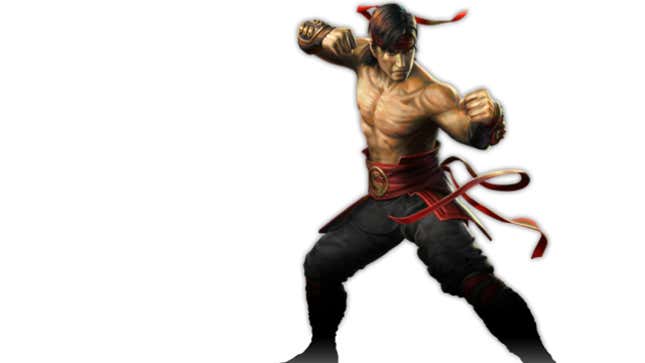
OTHER SERIES
Mortal Kombat (the first one): Liu Kang (China)
All we really know for sure is that Liu Kang wins the first Mortal Kombat tournament, which serves as a catalyst for the rest of the series' events. Every other game takes sort of a Soulcalibur IV approach to the story's final results: something happened, and it's not important who did it, but happen it did.
(Incidentally, this is also how most MMOs tell their stories, when they have to account for thousands or millions of coexisting players fulfilling the same quests.)
Guilty Gear: Sol Badguy (USA) x4
The Guilty Gear franchise is similar to The King of Fighters in that there are multiple stories going on, but it's clear that one is more significant than the others. When there is a conflict of canon, subsequent games generally treat the counter-intuitively named protagonist as the victorious party.
Super Smash Bros.: The Power of Imagination
Sorry to break it to you, but you're not actually playing as Mario, Link, Pikachu and Mr. Game & Watch in the Super Smash Bros. series. The conceit is that Super Smash Bros. is pretty much a glorified action figure battle, where toys and figurines come to life and fight for their owner's amusement (embodied by series antagonist Master Hand).
In Super Smash Bros. Brawl, things get a little more complicated, because they brought in the Kingdom Hearts guy to do the story mode. But, basically, the winner is Sonic the Hedgehog.
BlazBlue: Haha, hahahaha. Nope.
I'm not breaking this one down, and you can't make me do it. Pyrrhic victories, divergent timelines, closed time loops, memories lost and regained like poker chips: this, friends, is a complex story, with no clear winners. If you're the weird kind of person who actually enjoys following the story in fighting games, you owe it to yourself to examine this series, and we should probably be friends.
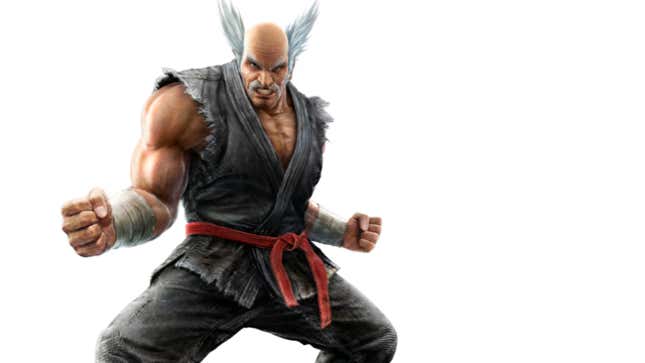
THE NATION OF CHAMPIONS
So, if we treated these tournaments and competitions between characters of various nations as we would FIFA, or the Olympics, which country would claim the most victories? Among these ten series, here's the final tally:
- JAPAN: 27
- CHINA: 10
- USA: 5
- FRANCE: 4
- CANADA: 3
- GERMANY: 2
- GREECE: 1
- MEXICO: 1
Wow. That's… really skewed. Let's see what happens if we don't count repeat winners:
- JAPAN: 13
- CHINA: 7
- FRANCE: 3
- USA: 2
- CANADA: 1
- GERMANY: 1
- GREECE: 1
- MEXICO: 1
That's not really much better. Clearly, we're looking at a pretty enormous bias toward Japanese protagonists, which shouldn't come as a surprise, considering most of these games are made there.
What other international fighting games would you factor into these results? How much did I get wrong? I promise I'll read your comments- and maybe even update the scoreboard.
Alex Jaffe is a review editor for DC Comics News. You can ask him all of your "who would win in a fight" questions on Twitter.
Top image by Sam Woolley.
Street Fighter image via Twitter. Dead or Alive image via Dead or Alive Wikia. King of Fighters image via MobyGames. Mortal Kombat via Mortal Kombat Wikia.

